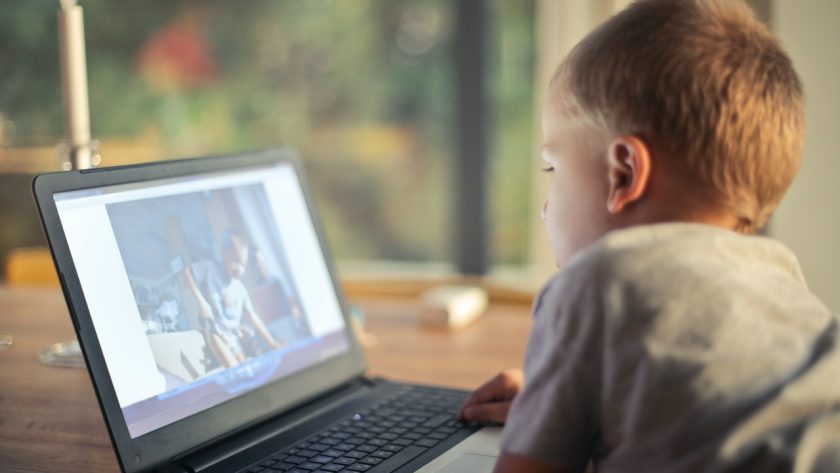The Importance of Balancing Kids’ Screen Time: Tips for Parents
In the digital age, it is increasingly important for parents to ensure that their children are not spending too much time in front of screens. Too much screen time can lead to a variety of physical and mental health issues, including obesity, sleep deprivation, and poor concentration. It is essential for parents to find ways to balance their kids’ screen time with other activities such as outdoor play, reading, and creative pursuits.
There are several strategies that parents can use to help manage their children’s screen time. Setting clear rules about when and how long kids can be on devices is an effective way to keep them from overusing them. Parents should also encourage their children to take part in activities outside of screens such as sports or art classes. Finally, it is important for parents to model healthy behavior by limiting their own device usage around their children. By following these tips, parents can help ensure that their kids have a balanced lifestyle with plenty of opportunities for growth and development.
Understanding the Impact of Excessive Screen Time on Children’s Development
Excessive screen time can have a significant impact on the development of children. It is important to understand how too much time spent in front of screens can affect their physical, mental, and emotional health.
Physically, excessive screen time can lead to poor posture, eye strain, headaches, and fatigue. It can also contribute to obesity due to lack of physical activity and unhealthy snacking habits that often accompany long periods of sitting in front of a screen. Mentally, it can lead to difficulty concentrating and focusing on tasks as well as decreased creativity. Emotionally, it can cause feelings of isolation from peers or family members who are not engaging in the same activities. Additionally, it may increase anxiety levels due to exposure to inappropriate content or cyberbullying.
It is important for parents and caregivers to be aware of the potential risks associated with excessive screen time so they can take steps to ensure their children’s safety and healthy development.
Setting Healthy Boundaries: Strategies for Managing Kids’ Screen Time
Setting healthy boundaries for kids’ screen time is an important part of parenting. It can be difficult to know how much screen time is too much, and it’s important to set limits that are appropriate for each child. Here are some strategies for managing kids’ screen time:
First, create a schedule that outlines when and how long your child can use screens. This will help them understand the expectations and give them structure. Make sure to include breaks throughout the day so they have time away from screens. You can also limit access to certain apps or websites by setting up parental controls on devices. Additionally, you can encourage other activities such as reading, playing outside, or doing crafts instead of using screens all the time. Finally, model good behavior yourself by limiting your own screen time and showing your children that there are other things in life besides technology.
By following these strategies, parents can ensure their children have a healthy relationship with technology while still enjoying its benefits. Setting clear boundaries around screen time will help kids learn self-discipline and develop healthier habits in the future.
Promoting a Balanced Lifestyle: Encouraging Alternative Activities for Kids
In today’s world, it is becoming increasingly important to promote a balanced lifestyle for children. With the rise of technology and the prevalence of video games, kids are spending more time indoors than ever before. This can lead to physical inactivity and an unhealthy lifestyle. To combat this, parents should encourage their children to participate in alternative activities that will help them stay active and healthy.
Activities such as sports, outdoor play, or even just taking a walk around the neighborhood can be beneficial for kids. These activities provide physical exercise while also allowing them to explore their environment and interact with others. Additionally, these activities can help build social skills and foster creativity. Parents should also consider introducing their children to new hobbies such as art classes or music lessons which can help develop their interests and talents. By promoting a balanced lifestyle through alternative activities, parents can ensure that their children are getting the most out of life while staying healthy at the same time.
Nurturing Healthy Habits: Creating a Screen Time Routine for Children
In today’s digital age, it is important to create a healthy balance between screen time and other activities for children. Establishing a routine for when and how much screen time is allowed can help children develop healthy habits that will last into adulthood.
When creating a screen time routine, parents should consider the child’s age and individual needs. For younger children, limiting their access to screens may be necessary in order to ensure they are getting enough physical activity and social interaction. Older children may need more guidance on how to use technology responsibly, such as setting limits on the types of content they can view or restricting access during certain times of day. Additionally, parents should encourage their children to take breaks from screens throughout the day by engaging in other activities like reading or playing outside. By establishing these routines early on, parents can help their children learn how to manage their own screen time in a healthy way.




